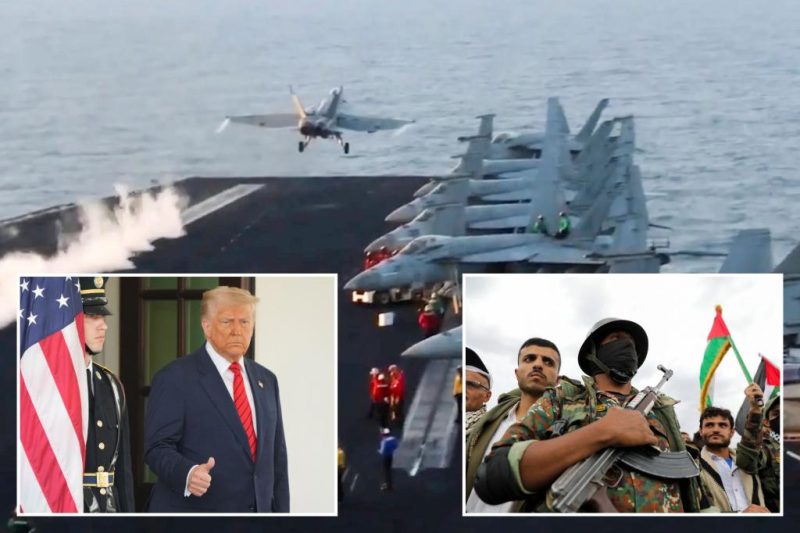
President Trump made a surprising announcement on Tuesday, claiming that the US would cease its bombing campaign against the Houthi rebels in Yemen. He attributed this decision to a purported agreement where the Houthis, backed by Iran, have pledged to halt attacks on American vessels in the Red Sea. The President asserted that the Houthis ‘don’t want to fight anymore,’ painting a picture of a conflict nearing resolution.
However, the details surrounding this alleged agreement remain scarce. No official statements from the Houthi movement have corroborated Trump’s claims, leaving many to question the veracity of his announcement. Independent verification of a ceasefire is crucial, given the ongoing humanitarian crisis and the complex dynamics of the Yemen conflict. Skepticism abounds, particularly given the lack of transparency and the history of fluctuating pronouncements regarding US involvement in the region.
The announcement comes at a time of heightened tensions in the Middle East, with ongoing concerns about Iran’s influence and the broader geopolitical implications for the region. Critics argue that such a unilateral declaration, without confirmation from all parties involved, risks undermining ongoing diplomatic efforts and could potentially embolden the Houthis or other actors in the conflict. Others caution against prematurely celebrating a potential de-escalation, highlighting the need for sustained peace negotiations and a comprehensive approach to resolving the multifaceted crisis in Yemen.
The long-term implications of this announcement remain unclear. Whether this represents a genuine turning point in the conflict or a temporary lull in hostilities remains to be seen. Continued monitoring of the situation and further clarification from official sources are essential to assess the credibility of Trump’s claims and the potential impact on the ongoing conflict in Yemen.










